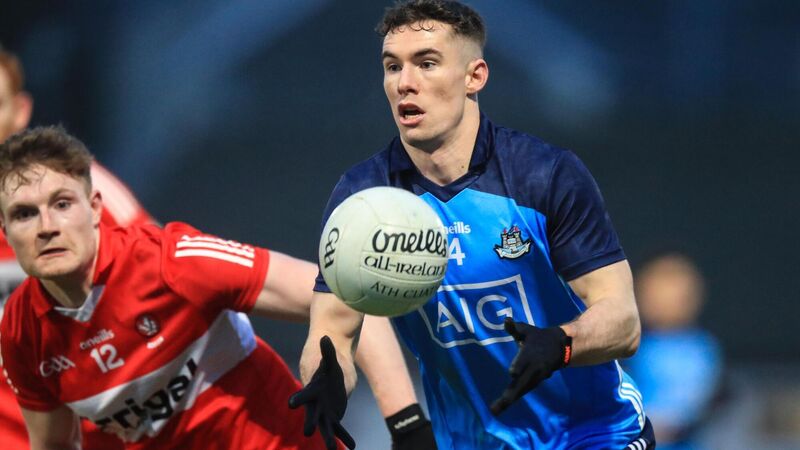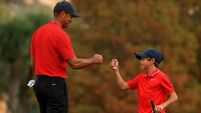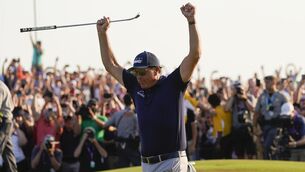Eamonn Fitzmaurice: Dubs may no longer be invincible, but they're not done yet

Dublin's Peadar O'Cofaigh Byrne in possession at Celtic Park on Saturday.
Make no mistake about it, Saturday was a statement win for Derry.
Regardless of what Rory Gallagher might say publicly he would have felt from the start of the season that this game would really inform the level of progress from last year's All Ireland semi final loss to Galway.











